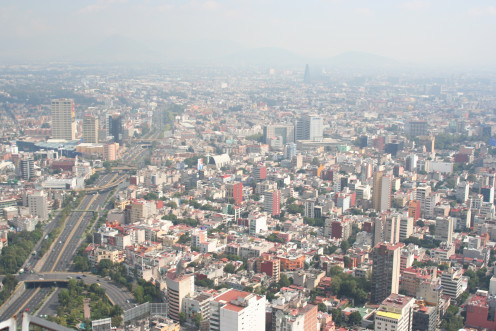How a Global Sterilization Program Would Curb Population Growth, Reduce Suffering & Conserve Natural Resources
Crowded Planet

A global sterilization program would reduce population growth, thus curbing starvation, poverty, child abuse, abortion, infanticide and gendercide. Global sterilization would preserve earth's resources for future generations, improving the quality of life for all of earth's inhabitants.
To be clear, I'm not talking about taking away peoples' right to have children but in light of the crisis the planet is facing, it is not unreasonable to put forth an idea to enact a global sterilization program that would limit the number of children per family.
Allow for Childbearing But Limit Family Size
A global sterilization program that allowed people to have an set number of children and then was mandatory after the number of children had been reached, would do so much to curb so many of the horrific problems facing families across the globe. How so?
This may seem like an extreme idea but please bear with me. Certainly, allowing people to be parents but setting reasonable limits on family size would be far less traumatic than the issues people are currently grappling with, such as unwanted pregnancies, millions of abortions that rob the lives of developing children each year, forced abortions and murder of late-term children in China, the tax burden imposed on Chinese parents who have unplanned children, famine and starvation in third world countries.
In these scenarios, prevention is far less invasive and traumatic than trying to address the problem after a pregnancy has already occurred.
Curbing an Exploding Global Population
Allowing humans to have a set number of children and then implementing sterilization is a sane approach that would afford people the joy of parenthood, while safeguarding the planet.
- FAMINE & STARVATION--How to prevent children from starving to death in poor areas? Limit family size. Smaller families would = fewer deaths.
- UNPLANNED PREGNANCIES & ABORTION--How to prevent millions of unplanned pregnancies and abortions each year? Limit reproduction. For those who already have children and who do not want more, sterilization would solve this problem.
- CHINA'S ONE CHILD POLICY--Most of us have read about horrific cases in the news and have wondered at the suffering those mothers must have undergone. Imagine desperately wanting your child and being forced into centers where that child was terminated? Sterilization to prevent future conception of children, would spare both mothers and unborn children this brand of agony.
- GENDERCIDE--A limit on number of children might help curb gendercide in some cultures because once these families reached their limit of children, they would not be in a position to bring forth more children and terminate those children based on gender. Additionally, legislation geared at prevention of revealing gender before birth would also limit gender-based abortions.
- CONSERVING NATURAL RESOURCES--How to combat the strain on global resources without infringing basic human rights? Set a reasonable limit for number of children per individual or family. This would have the immediate effect of freeing up resources to help feed, house, and warm the people presently living.
- IRRESPONSIBLE CHILDBEARING--A global sterilization program would go a long way in curbing irresponsible child bearing, thus preventing the bringing forth of children into families that are not equipped to look after them.This would help to reduce poverty for poor/illiterate families, and would curb perpetuation of this cycle.
- POVERTY--sterilization would reduce poverty worldwide. A reduction in family size would free up family resources. Having fewer mouths to feed, cloth, and house would mean a better standard of living for vulnerable populations.
As can be seem, implementing a compassionate global sterilization program that allows for children but responsibly addresses population growth would improve quality of life in so many different ways.
Containing Populations Spells Better Quality of Life

How to Administer a Compassionate Population Control Program
Each person or couple would be allowed a set number of children, for example, let's say 2 children and once they had, had these children, upon birth of the last child, either the mother could be routinely sterilized or the husband could opt to have the procedure.
Now, I know this idea may seem controversial and people may scream about infringement of rights but our planet is in trouble and so too its resources. For the safety and preservation of all life on the planet and for a better living standard overall, a program of responsible child bearing and prevention of pergnancies would immediately address challenges that have plagued mankind for centuries. We are a global family and, as such, our actions affect other people and the health of the planet.
Requiring people to be sterilized after they had produced a set number of children would be far less traumatic and less of an invasion of rights.
Why Limiting Childbearing Would Reduce Suffering
Reducing Suffering in Africa
Let's look at Africa, as an example. Many villagers live in poverty and cannot feed the children they bring forth. This brings incredible suffering on these children who then face a life of privation and potential starvation. Children should be protected and cared for and a sterilization program would go a long way in reducing terrible suffering. Sterilization in these places would have an immediate effect, helping to curb poverty, famine, suffering, disease and death. In a scenario of responsible oversight, a population that was managed and was eventually reduced, would free up resources, which could be used more effectively to protect the people already living.
Reducing Suffering in China
A sterilization program in China would eliminate the horror of women forcibly taken from their homes and being beaten or injected with the sole intention of terminating their unborn children to stem the population problem. Additionally, such a program would eliminate any tax burden on couples who have more than one child. If China allowed couples to have two children and then required sterilization, so many of these problems would be eliminated. This would be far more humane than what is occurring in this country, at present.
Gendercide
In countries where gendercide is practiced in favor of male children, a sterilization program might go a long way to curb this practice. If families knew they were only allowed two children, they might be more motivated to preserve pregnancies. At any rate, after they had reached their quota, they would be prevented from causing multiple pregnancies geared at producing male offspring and subsequent terminations of female children. While this might not stamp out all gender-related abortions, it would certainly help to reduce the numbers. As I mentioned above, additional measures, such as not revealing gender of unborn children, would also reduce the number of abortions.
Saving the Planet and Humankind
What would a reduction in global population mean for the earth and its inhabitants?
- Deforestation would be curbed because arable land would not be needed for factories, stores, houses, and roads. Urban sprawl would halt and possibly even reduce as the numbers equalized and then started to decline.
- Energy resources would last longer, allowing for development of other environmentally-friendly programs
- Pollution levels would be lowered which would spell better health for humans and the planet
Preserving the Earth, Raising the Bar of Quality of Life & Caring for the Global Family
Once a globally sustainable population size was reached, adjustments could be made, as needed, in relation to family size. If the population dwindled the number of children allowed per family could be raised, if deemed necessary.
We are a global family and as such, we all play a part in the health and well-being of all people across the globe and the sustainability of the planet. Humans have to take responsible steps to manage populations so as to preserve the earth and its resources and raise the bar on quality of life for all of earth's inhabitants.
Sound oversight regarding earth's population would do so much to reduce suffering around the world and stamp out problems related to unchecked population growth.
Is a Global Sterilization Program a Responsible Method to Curb Population Growth?
While the idea presented in this Hub, might not be considered ideal, neither are the problems facing humankind. A global population policy such as outlined above, would be a responsible method, one that would allow for childbearing but that would reduce global population levels and free up resources for all.








